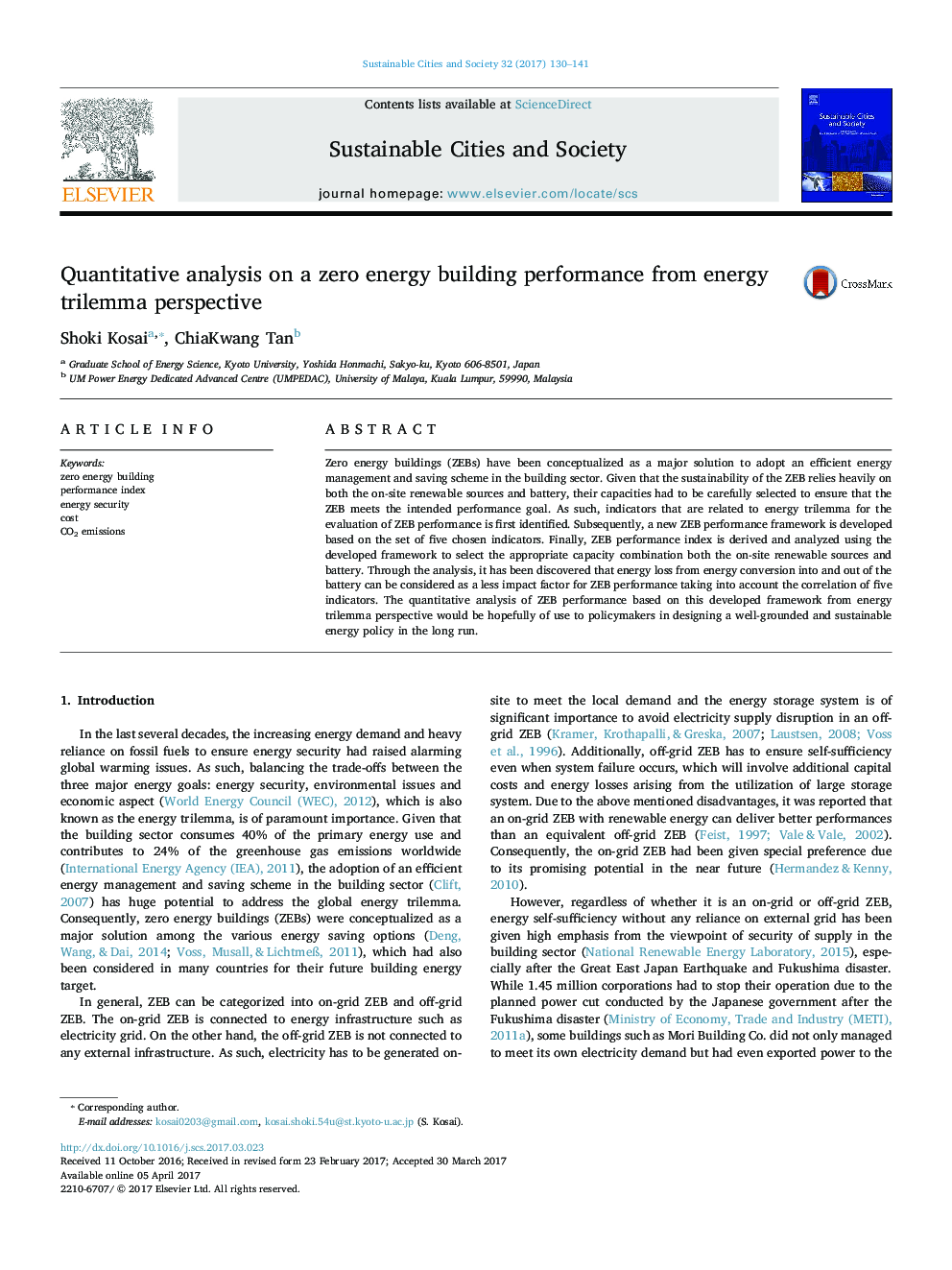| Article ID | Journal | Published Year | Pages | File Type |
|---|---|---|---|---|
| 4927999 | Sustainable Cities and Society | 2017 | 12 Pages |
Abstract
Zero energy buildings (ZEBs) have been conceptualized as a major solution to adopt an efficient energy management and saving scheme in the building sector. Given that the sustainability of the ZEB relies heavily on both the on-site renewable sources and battery, their capacities had to be carefully selected to ensure that the ZEB meets the intended performance goal. As such, indicators that are related to energy trilemma for the evaluation of ZEB performance is first identified. Subsequently, a new ZEB performance framework is developed based on the set of five chosen indicators. Finally, ZEB performance index is derived and analyzed using the developed framework to select the appropriate capacity combination both the on-site renewable sources and battery. Through the analysis, it has been discovered that energy loss from energy conversion into and out of the battery can be considered as a less impact factor for ZEB performance taking into account the correlation of five indicators. The quantitative analysis of ZEB performance based on this developed framework from energy trilemma perspective would be hopefully of use to policymakers in designing a well-grounded and sustainable energy policy in the long run.
Related Topics
Physical Sciences and Engineering
Energy
Renewable Energy, Sustainability and the Environment
Authors
Shoki Kosai, ChiaKwang Tan,
